Latest News

8th November, 2022
Background
Since 1 January 2021, traders involved in the importation of goods from outside the European
Union can avail of Postponed Accounting arrangements if they are registered for VAT and
Customs & Excise and hold a valid Postponed Accounting Authorisation. The holding of a
Postponed Accounting Authorisation is subject to the conditions laid out in the Value-Added
Tax Regulations 2010 (Regulations 14A) (Amendment) Regulations 2020.
Information for Importers
Postponed Accounting allows you, as an importer, postpone the payment of VAT at the time of
importation of goods. You will account for import VAT on the next VAT3 Return due after the
importation of the goods. In this scenario VAT may be reclaimed at the same time as it is
declared on a VAT3 Return (subject to the usual rules on deductibility).
It is you, as the importer who is obliged to account for the postponed VAT on your VAT3 return
and the VAT RTD. The declarant must not account for the VAT postponed under Postponed
Accounting arrangements.
You have an obligation to ensure that your import declarations are filed correctly to avail of
Postponed Accounting. Where you engage the services of an agent to act as the declarant in
filing import declarations on your behalf, you must ensure that the declarant understands
whether or not you wish to use your authorisation and avail of Postponed Accounting. Where
you do not wish to use your authorisation, you must ensure that the declarant does not
incorrectly input the Postponed Accounting code on Customs declarations.
Information for Declarants
You, as a declarant, must ensure that the Customs import declaration is completed correctly in
relation to the postponement of the payment of VAT at import. You should be fully aware of
the intention of the importer with regard to the VAT treatment to be applied to the importation
of the goods. If the importer wishes to avail of Postponed Accounting, you must correctly
declare their EORI Number and enter the correct detail on the declaration to ensure that VAT
Postponed Accounting arrangements are applied to the declaration. You, as the declarant,
must not account for the VAT which you have had postponed under the importer’s Postponed
Accounting Authorisation.
If the importer does not wish to avail of Postponed Accounting, you must not incorrectly apply
the Postponed Accounting code on the Customs declaration.
Compliance with the Requirements
Importers or declarants who fail to ensure/file correct declarations may be deemed to be
infringing the Customs Act, the Union Customs Code and its Delegated and Implementing Acts.
Where deemed appropriate Administrative Penalties may be applied and these can range from
€100 to €250 in respect of each failure.
Guidance for claiming postponed VAT on the Import Declaration
The following outlines the data requirements on the import declaration, and the response
message details from Revenue’s import declaration system – Automated Import System (AIS).
AIS Import Declaration:
- Declare the importers EORI number in Data Element (DE) 3/16
- Declare 1A05 in Data Element (DE) 2/3 followed by text IEPOSTPONED
- If the importer does not have a valid Postponed Accounting Authorisation, the declaration will be rejected
- If the importer has a valid Postponed Accounting Authorisation, the declaration will progress as normal.
- VAT is calculated and indicated as tax type 1B2.
- This calculated amount of VAT is communicated back to the declarant in the IM429 message.
- Because VAT at import is being postponed, the amount of VAT under 1B2 is for information purposes only and is NOT included in the total liability for collection at the time of import.
Postponed Accounting Entries on the VAT3 Return
The PA1 field on the VAT3 Return should include the Customs value of goods imported under
Postponed Accounting as per Customs declarations plus Customs Duty. This figure should
include all goods imported under Postponed Accounting to which all VAT rates apply. Imported
goods that are classed as zero-rated goods should also be included in the PA1 field if Postponed
Accounting was applied on the Customs declaration for these particular goods.
The T1 figure on the VAT3 Return should include the amount of VAT applicable to the entry at
the PA1 field on the return.
The T2 figure on the VAT3 Return should also include the amount of VAT applicable to the entry
at the PA1 field on the return (subject to the usual rules of deductibility).
Importers must ensure that VAT postponed at the time of importation is correctly reflected
on the next VAT3 Return due. Failure to correctly account for this can result in the issue of a
Notice of Exclusion from Postponed Accounting arrangements.
Additional Information
Further information and guidance with regard to the Customs value of goods is available in the
Tax and Duty Manual (TDM) Customs Manual on Valuation on www.revenue.ie.
Revenue has available a series of reports for those businesses that have a Customs and Excise
TAN (C&E TAN) Account or are importers. These reports are there to assist you in managing
your account, ensuring there are sufficient funds available to pay any customs duties owning
at import and to provide you with details on the amount of VAT that you have postponed. The
key reports are:
- C&E weekly declaration transaction list
- C&E monthly declaration and payment statement
- C&E TAN balance enquiry
- C&E payment reports
Full details are available in the C&E TAN Reports available on Revenue’s Online Service
(ROS) for C&E Traders Guide
Latest News
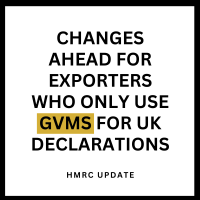
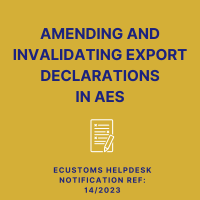
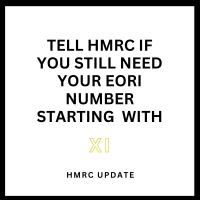
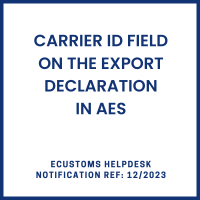
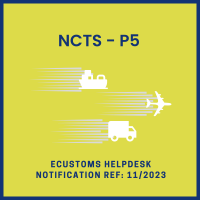
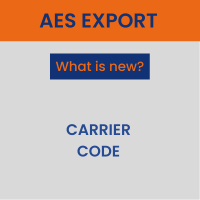
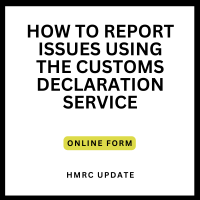
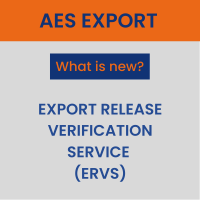
CONTACT US FOR CONSULTATION AND MEMBERSHIP
This is a no obligation initial step to review your Customs-IT membership.

